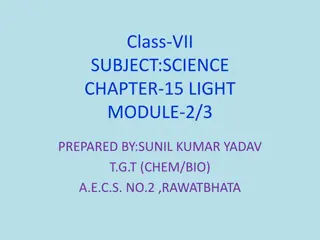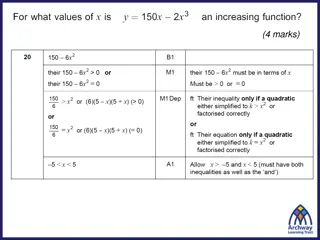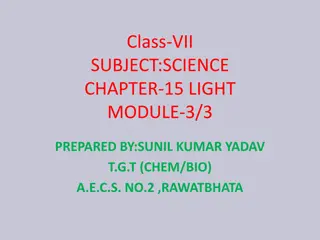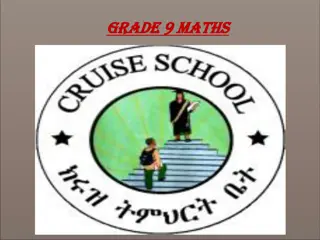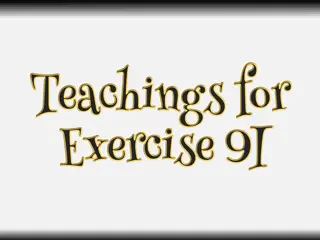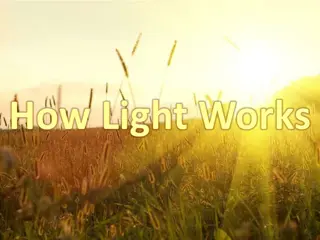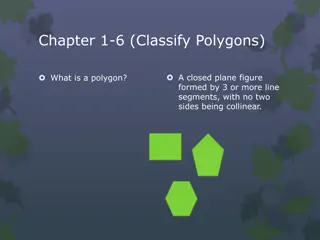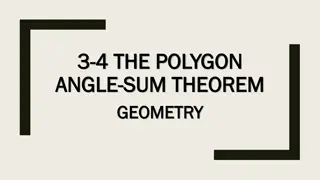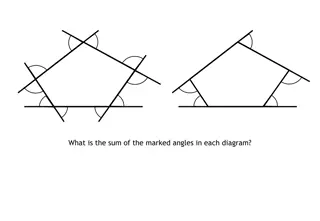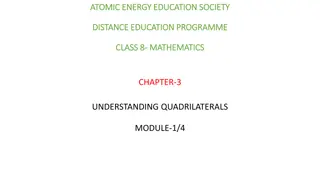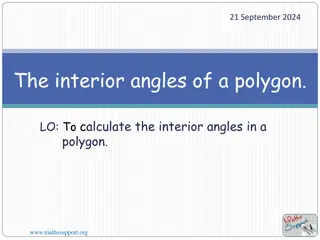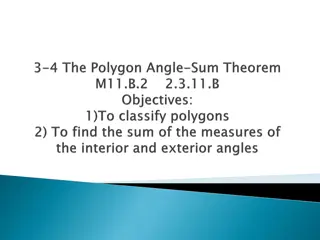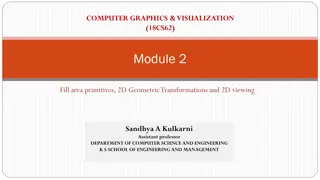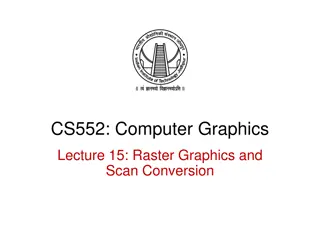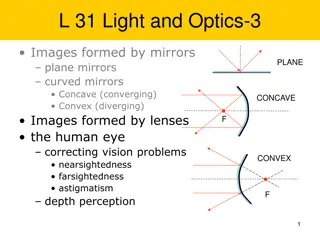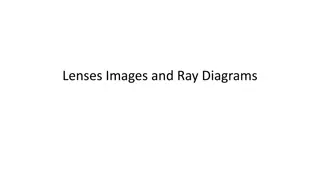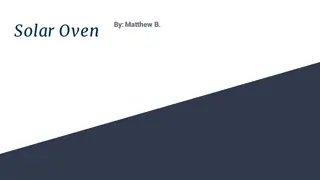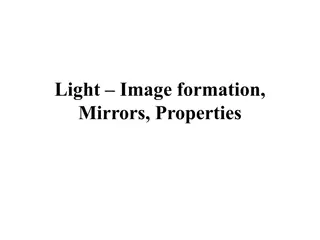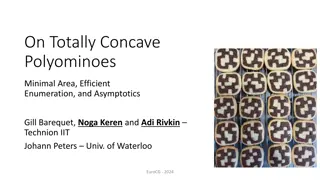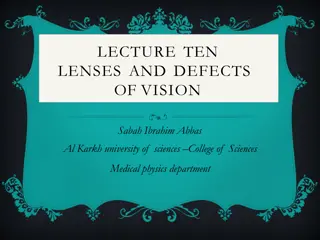Spherical Mirrors: Concave and Convex Types, Image Formation, and Practical Uses
Spherical mirrors, including concave and convex types, play a crucial role in reflecting light. By exploring the properties of concave and convex mirrors, understanding image formation, and discovering their diverse applications in daily life, we can grasp the significance of these mirrors in scienc
0 views • 9 slides
Microbiology Study: Hanging Drop Technique in Department of Microbiology, College of Medicine
In the Department of Microbiology at the College of Medicine, the Hanging Drop Technique is utilized to study live microorganisms. This technique involves suspending microorganisms in fluid on a hollow ground slide, allowing for observation of their morphology under a microscope. By creating a wet m
1 views • 8 slides
Reflection and Refraction of Light
Explore the fascinating world of reflection and refraction of light, delving into concepts such as the laws of reflection, real vs. virtual images, characteristics of mirror-formed images, and the types of spherical mirrors - concave and convex. Discover how light behaves when it interacts with diff
2 views • 23 slides
Points of Inflection in Calculus
Points of inflection in calculus refer to points where the curve changes from convex to concave or vice versa. These points are identified by observing changes in the curve's concavity, and they are not always stationary points. A stationary point can be a point of inflection, but not all points of
0 views • 14 slides
Light and Lenses: Exploring Colors and Images Formed
Explore the fascinating world of light and lenses in this module. Discover how lenses work, types of lenses like convex and concave, images formed by lenses, and the dispersion of sunlight into seven colors. Engage in activities showcasing the colors of sunlight and delve into the enchanting realm o
2 views • 10 slides
Discovering Geometry and Measurement Concepts in Grade 9 Mathematics
Explore the fundamentals of geometry and measurement in grade 9 math, covering topics such as regular polygons, congruence and similarity of triangles, construction of similar figures, trigonometric ratios application, circle properties, and problem-solving related to triangles and parallelograms. U
0 views • 17 slides
Understand Convex and Concave Functions in Mathematics
Learn about convex and concave functions in mathematics, including how to differentiate between them, identify their characteristics, and analyze gradients. Explore the concepts with practical examples and visual aids. Enhance your proficiency in answering questions related to convex and concave fun
0 views • 15 slides
Light: Basic Properties and Interactions
Explore the fundamental properties of light such as its speed compared to sound, the formation of shadows, and how we see things through reflection. Dive into types of light interactions like refraction and reflection, understanding how light behaves when passing through different mediums and intera
0 views • 27 slides
Joint Motion: Osteokinematic and Arthrokinematic Movements
Joint motion involves osteokinematic movements, which are under voluntary control and include flexion, extension, and more. End-feel sensations like bony, capsular, and springy block indicate different joint conditions. Arthrokinematic motion refers to how joint surfaces move during osteokinematic m
1 views • 17 slides
Polygons: Classifying Shapes with Multiple Sides
Explore the world of polygons, closed plane figures consisting of three or more line segments. Learn about convex and concave polygons, different classifications based on the number of sides, and properties of congruent polygons. Dive into examples and problems to deepen your understanding.
0 views • 7 slides
Polygons in Geometry
Explore the concept of polygons, their sides, vertices, and angles, and learn to classify them as convex or concave. Discover the Polygon Angle Sum Theorem and find the sum of measures of angles in a given polygon.
0 views • 13 slides
Geometry Angle Sum and Properties Exploration
Dive into the world of geometry with various diagrams and scenarios focusing on angle sums, concave and convex polygons, and angle measurements. Learn about properties of polygons and test your skills in identifying different shapes and their classifications based on their properties. Explore angles
0 views • 18 slides
Quadrilaterals in Mathematics Education
This educational content delves into the understanding of quadrilaterals in mathematics, covering topics such as polygons, convex and concave shapes, regularity, diagonals, and angle properties. Through detailed explanations and visual aids, viewers can grasp the fundamental concepts and properties
0 views • 20 slides
Interior Angles in Polygons
Explore the concept of interior angles in polygons, including definitions of polygons, convex and concave polygons, regular and irregular polygons, as well as the sum of interior angles in triangles and quadrilaterals. Discover the naming convention for polygons based on their number of sides and le
0 views • 16 slides
Polygon Properties and Classification
Explore the fundamental concepts of polygons, such as vertices, sides, angles, and classifications like convex and concave polygons. Learn about the interior and exterior angles of polygons, the sum of angle measures, and the properties of regular polygons. Discover how to identify, classify, and ca
0 views • 13 slides
Fill Area Primitives in Computer Graphics
An overview of fill area primitives in computer graphics, including the concept of fill areas, polygon fill areas, and polygon classifications into convex and concave polygons. This module covers the efficient processing of polygons, approximating curved surfaces, and generating wire-frame views of
0 views • 63 slides
Raster Graphics and Scan Conversion in Computer Graphics
This lecture covers various topics related to raster graphics and scan conversion in computer graphics. It includes issues with scan converting a line, generalized line drawing algorithms, and the midpoint circle drawing algorithm. Additionally, it explores deriving mathematical expressions for draw
0 views • 21 slides
Light, Optics, and Vision Correction
Understanding images formed by mirrors, lenses, and the human eye in the context of light and optics. Covering concepts like reflection, refraction, concave and convex mirrors, types of lenses, correcting vision issues, and laws governing the behavior of light.
0 views • 22 slides
Lenses: Types, Functions, and Rules
Delve into the world of lenses, exploring how they manipulate light rays using refraction. Discover the two main types of lenses - converging and diverging, and learn about their unique properties and focal points. Gain insights into the rules governing convex and concave lenses, and unlock the secr
0 views • 23 slides
DIY Solar Oven: Harnessing the Power of the Sun for Cooking
Learn how to construct a solar oven using simple materials like a pizza box, aluminum foil, black paper, and cling wrap. Explore the science behind the greenhouse effect, concave mirrors, and heat amplification to cook food using renewable solar energy. Discover the upsides and downsides of solar ov
0 views • 6 slides
Light: Image Formation, Mirrors, and Properties
Light is a form of electromagnetic energy essential for vision. Explore its properties, including reflection, refraction, virtual and real images formed by mirrors, laws of reflection, and characteristics of images. Delve into concave and convex mirrors, understanding focal points and image formatio
0 views • 25 slides
Efficient Enumeration and Minimal Area of Totally Concave Polyominoes
Researchers present findings on total concavity in polyominoes, exploring the minimal area, efficient enumeration methods, and asymptotic behaviors. Various bounds and algorithms are discussed, including a backtracking prototype and Jensen's algorithm for counting polyominoes without generating all
0 views • 22 slides
Lenses and Vision Defects in Medical Physics
Explore the fascinating world of lenses and vision defects in this detailed lecture from Sabah Ibrahim Abbas at Al Karkh University. Discover the properties of convex and concave lenses, how light refraction forms images, and the workings of the human eye with its cornea, iris, lens, and retina. Gai
28 views • 29 slides
